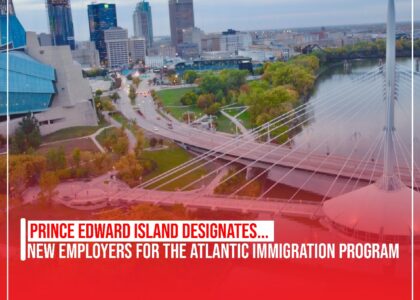Navigating Your Path with Mansory Consultants
As of 2024, Canada is home to over 3 million temporary residents, with a permanent residency target set at just 281,135. This disparity makes it clear that gaining permanent residency in Canada is highly competitive, especially for international students. Many face tough decisions after their Post-Graduation Work Permit (PGWP) expires: Should they stay in Canada and pursue uncertain pathways, or return home and work towards meeting the requirements for permanent residency from abroad?
In this blog, Mansory Consultants will explore why leaving Canada might be a better option for some students and how you can still work towards achieving permanent residency.
Current Immigration Scenario
Canada’s immigration system is designed to reduce the number of temporary residents while maintaining a high demand for permanent residency. With over 3 million temporary residents and limited permanent residency spots, the competition is intense. This is particularly challenging for international students nearing the end of their PGWP. As Canada continues to welcome new international students each year, the path to permanent residency becomes even more crowded.
Ethical Considerations and Practical Realities
Faced with the pressure to stay in Canada, some students might consider unethical options, such as purchasing Labour Market Impact Assessments (LMIAs) or reapplying for a study permit. However, these routes come with significant risks, including legal issues, financial burdens, and stress. A more ethical and practical strategy could be to return to your home country and work on improving your profile to meet the Canadian immigration requirements from abroad.
Factors That Can Maximize Your Chances for Permanent Residency from Abroad
Utilizing Canadian Experience
Leaving Canada doesn’t mean the end of your journey towards permanent residency. The Canadian work experience you gained remains valid for up to three years. This gives you ample time to return home, gain more relevant experience, and improve your profile before applying again.
Cost of Living and Financial Stability
Canada’s high cost of living can be a significant burden for international students. Returning to your home country can relieve financial pressure and provide family support. This allows you to focus on enhancing your immigration profile without the constant worry of living expenses.
Learning French
Proficiency in French can significantly boost your chances of qualifying for Francophone Express Entry draws, which often have lower Comprehensive Ranking System (CRS) cut-off scores. Learning French while in Canada can be challenging due to work and financial pressures. However, returning home allows you to dedicate more time to mastering the language, improving your chances of success.
Gaining Relevant Experience
Canada’s shrinking job market can make it difficult to gain the necessary work experience for immigration. Returning home might offer better opportunities to secure jobs in targeted occupations. By gaining relevant experience in your home country, you can strengthen your profile and improve your chances of qualifying for Canadian immigration programs.
Strategic Steps to Make Your Decision
Each international student has a unique profile, so it’s important to take strategic steps when deciding whether to stay in Canada or return home:
- Evaluate Your Current Situation: Assess your qualifications, work experience, and language skills to see how they align with Canadian immigration requirements.
- Plan Your Exit Strategy: If your PGWP is about to expire and you’re far from meeting the required criteria, consider leaving Canada strategically. Secure a visitor visa to maintain access to Canada while working on improving your profile abroad.
- Focus on Skill Development: Identify in-demand skills for Canadian immigration programs. Consider pursuing additional certifications, gaining relevant work experience, or improving language proficiency.
- Leverage Canadian Experience: Your Canadian work experience remains valid for three years. Use this time wisely to meet the necessary criteria for permanent residency.
- Stay Informed: Keep up with changes in immigration policies and programs. Regularly check the requirements for Express Entry and Provincial Nominee Programs (PNPs) to ensure your efforts align with current criteria.
Advantages of Returning Home
Returning to your home country offers several benefits:
- Financial Relief: Lower living costs and family support can ease financial stress, allowing you to focus on enhancing your profile.
- Dedicated Study Time: With fewer distractions, you can dedicate more time to learning French or other skills needed for immigration.
- Gaining Relevant Experience: Access to jobs in targeted occupations can help you gain the necessary experience to qualify for Canadian immigration programs.
Conclusion
Securing permanent residency in Canada is challenging, especially given the competitive landscape and limited quotas. For many international students, the best strategy might be to return home and focus on improving their profiles. By leveraging your Canadian experience, focusing on skill development, and strategically planning your next steps, you can enhance your chances of achieving permanent residency in Canada.
Mansory Consultants is here to guide you through this process, helping you make informed, ethical decisions and stay committed to your long-term goals. Contact us today for personalized advice on your immigration journey.





